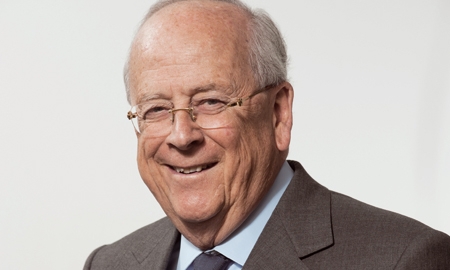Mexico is busy signing free trade treaties with other countries to help spur closer links between countries facing the Pacific Ocean. This is an issue enthusiastically supported by Claudio X González, the President of Kimberly Clark Mexico.
He points out that Mexico has been invited to join the six countries that participate in the Trans-Pacific Partnership (TPP), of which the main member is the United States. Canada has also been invited, and Mr González says “it is a matter of time before more countries enter the TPP because this is an initiative with much promise.”
He has no doubt that the world is moving away from 300 years of being Atlantic-centered to being more Pacific-centred. This transfer is from the Atlantic to the Pacific via North America, and Mexico is a part of North America that faces both the Atlantic and the Pacific oceans.
Mr González considers that the main global area for future expansion will be the Pacific region. This helps explain why Mexico has signed free trade agreements with more than 60 per cent of the world’s gross product.
“It is a matter of time before more countries enter the TPP because this is an initiative with much promise.”
Claudio X González,
President of Kimberly
Clark Mexico
|
He emphasises that Mexican began to create an open market two decades ago, and it views the TPP initiative with much interest because “it implies more markets, more opportunities to grow, and that is really interesting for the country and the Mexico business community.”
He is optimistic about the new generation of Mexican businessmen. “They are very well trained, and they have not lived anything else but an open Mexico,” Mr González says. “I had to live the closed and protectionist Mexico, and later participate in creating the open Mexico.”
He adds that these businessmen “do not know anything other than growing through competition, innovation, and investment in more and better technologies.”
Referring to a photograph taken in April 2012 at the 6th summit of the Americas in Cartagena de Indias in Colombia of the presidents of Colombia, Mexico and Chile, Mr González was asked his opinion on these three Latin American countries.
“Chile is enviable, it is an example in many senses and is more advanced than us even,” answered Mr González. “Colombia is going very quickly. And though you didn’t mention Peru, it is taking strong steps forward. The only country that faces the Pacific but is not so advanced is Ecuador. But Colombia, Peru and Chile are on the right path, with Chile the most advanced.”
Mr González recognises that Kimberly Clark Mexico depends a lot on the country’s internal market, and says the internal market is extremely important for local businessmen and foreign investors.
“I have always said that what Mexico needs is to grow, grow and grow,” he says. “Every day we must create more opportunities, more jobs, more inclusion. What do I mean by inclusion? Precisely creating a bigger middle-class, which means having more justice, more equality and, very importantly, more consumers”.
His conclusion is that Mexico’s internal market is very big today, but with a larger middle-class it has a potential to be much bigger.

0 COMMENTS